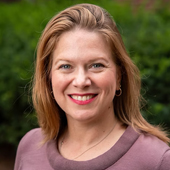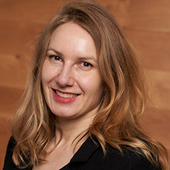CoDEx 2026 - Keynote Panel
Research Replication in the Modern World: Challenges and Opportunities
Replicability of research results is a cornerstone of scientific advancement, but researchers in many fields struggle to design and conduct studies that can be successfully replicated.
Our panel discussion will help researchers identify ways to make their studies more replicable and generalizable, with particular emphasis on the importance of systematically attending to sampling issues and heterogeneous effects across groups.
Panelists
Elizabeth Tipton
Professor of Statistics and Data Science; Professor of Education and Social Policy (by Courtesy); IPR Fellow; Co-Director of the STEPP Center
Elizabeth Tipton’s research focuses on the design and analysis of field experiments, particularly on their external validity and on how to make causal generalizations from them. She is developing methods and tools to improve the generalizability of large randomized trials, especially in education and psychology. Her research in meta-analysis—the combination of results across many smaller trials—examines modeling and adjusting for dependence between effect sizes.
Additionally, in a new line of research, she has begun studying ways to improve the mobilization of statistical information in decision-making, e.g., through improved data visualizations and data summaries.
Tipton is an elected fellow of both the American Statistical Association and the American Educational Research Association, and a member of the National Academy of Education.
Jessica Hullman
Ginni Rometty Professor of Computer Science and a Faculty Fellow at the Institute for Policy Research
Jessica Hullman is the Ginni Rometty Professor of Computer Science, McCormick School of Science and Engineering, and a Faculty Fellow at the Institute for Policy Research at Northwestern University. Her research develops theoretical frameworks and interface tools to help people combine their knowledge with that of statistical models, such as modern AI.
Her work draws on foundational models of decision-making under uncertainty, such as Bayesian decision theory, while addressing current problems at the interface between humans and statistical models. She also maintains an active interest in meta-science.
Hullman’s work has been awarded multiple best paper and honorable mention awards at conferences, a Microsoft Faculty Fellowship, and an NSF CAREER award, among others.
Jacob M. Schauer
Assistant Professor, Preventive Medicine (Biostatistics and Informatics), Feinberg School of Medicine
Jacob Schauer develops and applies statistical methods for social and health sciences. His methodological research concerns the study of replication, but he also works on issues in meta-analysis and missing data. In his applied and collaborative research, he works on clinical and multisite trials, as well as interpretable machine learning approaches to medical diagnoses.
Moderator
Christina Maimone
Associate Director, Research Data Services
Christina leads the Data Services teams that support researchers in working with their data throughout the research lifecycle, from collecting and securely storing it to analyzing and visualizing it.
Read more about Christina.



